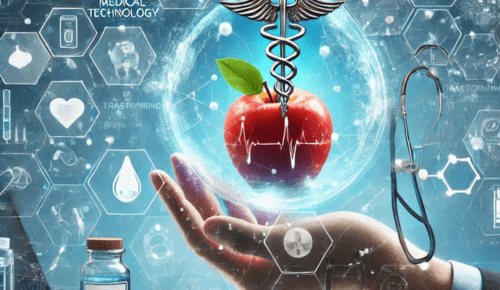Medical technology has evolved significantly over the past few decades, reshaping the healthcare landscape and improving the quality of care patients receive. From diagnostic tools and medical devices to treatment procedures and health management systems, innovations in medical technology have played a pivotal role in advancing the industry. With new breakthroughs in artificial intelligence, robotics, and telemedicine, the future of healthcare is poised for even more transformative changes. This blog explores the key innovations in medical technology and how they are revolutionizing healthcare.
Advancements in Diagnostic Tools
One of the most notable improvements in medical technology is the enhancement of diagnostic tools. Advanced imaging techniques, such as MRI, CT scans, and ultrasound, have significantly improved doctors’ ability to detect and diagnose a wide range of conditions, from cancers to neurological disorders. These technologies allow for more accurate, non-invasive, and timely diagnoses, which can lead to earlier detection and better patient outcomes.
In addition to imaging, new technologies like genetic testing and biomarkers are helping to personalize treatments. By analyzing genetic makeup and other factors, doctors can now create more effective, individualized treatment plans for patients, particularly in the fields of oncology and rare diseases.
Robotics and Automation in Surgery
Robotics has revolutionized the field of surgery, making procedures more precise, less invasive, and faster. Robotic systems, such as the da Vinci Surgical System, allow surgeons to perform complex surgeries with enhanced precision through tiny incisions, reducing recovery times and minimizing the risk of infection. These systems also provide 3D visualization of the surgical site, improving the accuracy of the procedure.
Automation is also making its way into various aspects of healthcare, including medication dispensing, laboratory testing, and even rehabilitation. Robots are being used to assist in physical therapy, providing patients with personalized exercises that aid in recovery and mobility.
Telemedicine: Healthcare at Your Fingertips
Telemedicine has grown rapidly, especially in recent years, as a result of the global pandemic. Through video consultations, patients can now connect with healthcare providers without leaving their homes. This technology has made healthcare more accessible, particularly in rural and underserved areas, and has allowed patients to receive timely care from the comfort of their own homes.
In addition to video consultations, telemedicine also includes remote monitoring tools, such as wearable devices that track vital signs like heart rate, blood sugar levels, and oxygen saturation. These devices allow for continuous monitoring of a patient’s health, enabling healthcare providers to make more informed decisions and intervene when necessary.
Artificial Intelligence in Healthcare
Artificial intelligence (AI) has made significant strides in the healthcare industry, particularly in areas like diagnostics, treatment planning, and patient care. AI-powered tools are being used to analyze medical data, such as imaging results and lab reports, to identify patterns that might not be immediately visible to human doctors. In some cases, AI can diagnose conditions more quickly and accurately than humans, particularly in fields like radiology and pathology.
AI is also being used to streamline administrative tasks, such as patient record management, billing, and scheduling. By automating these processes, healthcare providers can reduce human error and improve operational efficiency, leading to better patient experiences and lower healthcare costs.
The Rise of Personalized Medicine
Personalized medicine, which tailors treatment based on an individual’s genetic profile and lifestyle, is one of the most exciting developments in medical technology. By understanding how a person’s genetic makeup affects their response to drugs, healthcare providers can choose the most effective medications and dosages for each patient.
Pharmacogenomics, the study of how genes affect a person’s response to drugs, is a key component of personalized medicine. This technology has the potential to minimize adverse drug reactions and improve the efficacy of treatments, particularly for patients with chronic conditions or cancer.
Future of Medical Technology
The future of medical technology holds incredible promise. As we continue to explore new frontiers in AI, robotics, and data analytics, we can expect more breakthroughs that will further improve the quality of care and patient outcomes. Innovations in nanotechnology, gene editing, and regenerative medicine could lead to even more advanced treatments for conditions that were once considered untreatable.
Moreover, with the advent of more wearable devices and advanced monitoring tools, healthcare is becoming more proactive rather than reactive. By enabling early detection and continuous monitoring, medical technology is helping to prevent diseases before they become life-threatening.
Slot Games for Relaxation and Fun
In the world of medical technology, the focus is always on improving health and well-being, but sometimes, relaxation and enjoyment are just as important for mental health. For those looking for a fun and relaxing way to unwind, playing Slot games offers a casual form of entertainment. Whether you enjoy traditional slot machines or modern video slots with exciting themes, slot games can provide a stress-relieving break from daily pressures. Dive into the world of gaming and enjoy the thrill of winning, all while appreciating the incredible advancements happening in healthcare technology!

